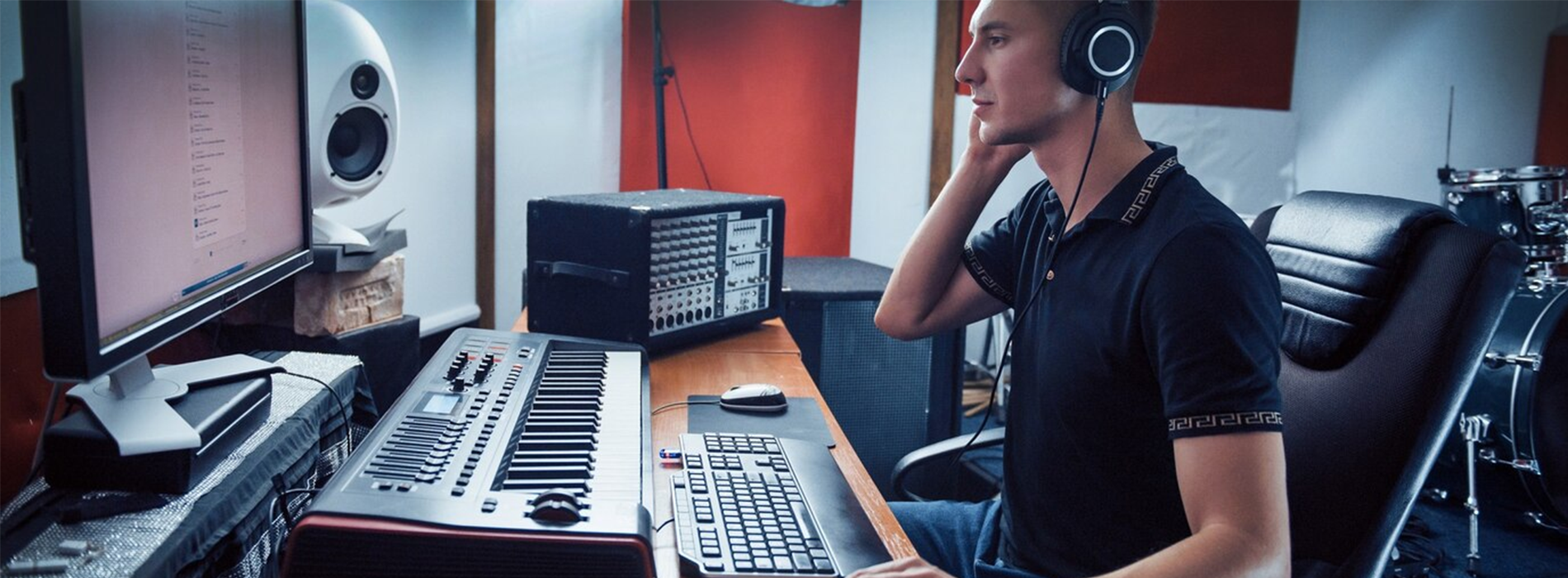Educating oneself is essential for achieving your objectives and improving your talents. If you are enthusiastic about music, you may transform it into a solid career. To achieve dominance in a specific field, one must embark on a long learning journey. The full-time education will assist interns in becoming acquainted with the institute’s working circle and its large music community.
Music is an art form that allows you to communicate your feelings and thoughts on a completely another level. Playing the piano, singing, teaching music, or gaining a degree will all help you hone your technical talents.
Music production colleges have launched an initiative to give the greatest music production courses that only focus on a well-structured and integrated learning experience for its students. If you enrol in one of the music production colleges and complete the course with high marks, you will have several options for developing a professional future in music production. You’ll be exploring your passion while learning about it and building a portfolio to help you convert it into a profession.
A Career in Music Production
According to the International Federation of the Phonographic Industry (IFPI), the music market grew by 7.4% in 2020 which is the sixth consecutive year of growth. This only goes to show that the demand for the music industry is growing which is also attracting youngsters to pursue music production as a career.
There are many institutes that offer music production courses in India which can be a kick-start for many professional careers in music. It is not only about having interest but the ability to read music which helps you to communicate with the musicians.
Being proficient with multiple instruments can develop your musical understanding which will help you produce your own music samples. The primary goal should be to create music that will connect with people on an emotional level.
Music Production Course Details: Eligibility
Any student willing to pursue a diploma in music in India should have completed at least 12th grade from any stream and a recognized college.
A diploma in music production has no age limit as such. Before enrolling in any institute, it is important to check their reviews and what their past students have to say about them.
Most importantly, you need to have a deep passion for music and a basic understanding of music to pursue a diploma in music production.
Music Production Course Details: Job Roles
Once you have completed your music production course there are ample opportunities that you can pursue.
Listed below are the job opportunities you can choose as per your interest:
- Music Producer – A music producer is in charge of the production and recording of individual tracks or albums. Music producers are often known as record producers or track composers.
- Digital Auto Editor – Digital audio editors typically operate in the post-production phase of music productions, assisting in the enhancement of the quality and sound of every project in which they participate.
- Audio Technician – An audio technician is mainly concerned with the sound quality of musical projects. They participate in music recording and are in charge of technical aspects of the process such as controlling sound recording equipment and modifying produced pieces on a sound or mixing board.
- Instrument Technician – Managing instruments during recording takes, assuring instruments are in tune, and setting up instruments for studio sessions are all part of an instrument technician’s duties.
- Recording Studio Manager – A recording studio manager is in charge of the studio’s business operations. Their responsibilities include hiring personnel to run recording equipment and booking studio time for musicians and producers.
- Sound Mixer – A sound mixer is responsible for sound balance in recording production. This includes track loudness and audio quality, which might change during sessions or if several microphones are used.
- Sound Designer – A sound designer applies audio features to recording in order to enhance their quality. These might be real-time recordings of speech, instrumentals, or other ambient noises that enhance their musical endeavours.
- A&R Coordinator – A&R refers to “artists and repertoire,” and A&R coordinators analyze performers and their areas of work to see if they’d be a good fit for the record label for which they work.
- Audio Visual Technician – An audio-visual technician is in charge of sound and video equipment. Audio-visual technicians in music production may collaborate with musicians on music videos and perhaps other music compositions that include video components.
- Music Editor for Films – A music editor in the film business edit music and incorporates it into cinematic projects. This can include altering audio files, mixing songs, and timing music to films so that it plays at certain times.
What does It Take to be in Music Production? Skills
- Music theory and composition
- Ability to manage people
- Good communication skills
- Great if you can play instruments
- Creating theories and compositions
- Project Management
The benefit of learning Music Production
- Musical skills are developed – A music production curriculum will assist you in developing your musical abilities and expertise. You’ll discover how to write, arrange, and produce music.
- Improve your creativity – Music production courses encourage you to stretch yourself and expand your creativity. You will learn how to make distinctive sounds using various music production software and instruments.
- Confidence building – For any professional working in this sector, confidence is essential. One should be able to compose music not simply because they are under pressure, but because they love and are passionate about it.
- Meet light-minded people – A music production course will assist you in connecting with others. You’ll be able to network with other artists and industry professionals.
- Get exposure – A major music institute will provide you with unequalled exposure. They would provide you with the essential information to produce music that is well-suitable for any field.
What are the Courses You Can Take to Pursue Music Production?
There are options available for those who want to make a career in music production. There are also online music production courses that you can take while you are completing your school. These courses are designed to help develop your skills so that you can continue in your dream of pursuing music production.
- BA in Music Production
- BA Music Management
- BA (Hons) Sound and Music Production
- Bachelor of Science in Music Production
Conclusion
Music Production is a thrilling and rewarding profession. You may find work in several sectors and make nice pay if you have the necessary skills and certifications.
Before enrolling in any school or pursuing music production as a full-time career, do your research. To be successful in this area, you must have patience, devotion, creativity, and industry knowledge.



















